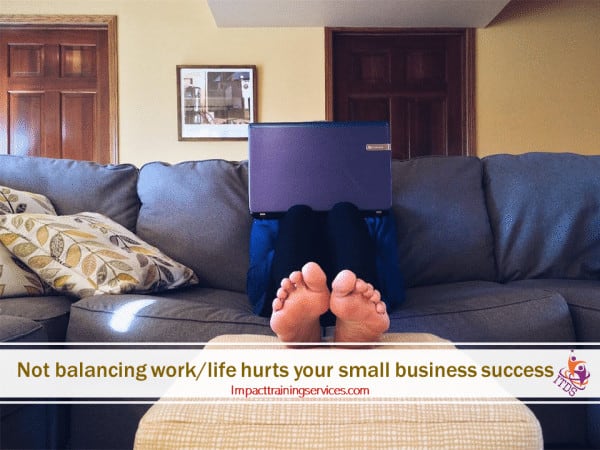Last Updated on April 1, 2024 by Lorna Barrow

The stats on small business failure are so staggering, whichever country you choose, they undermine small business success.
And whichever country entrepreneurs and business owners are doing business in, they feel the weight of the data.
A big part of your problem is that the recognized and accepted reasons small business don’t succeed are many.
They start with lack of experience, pass through poor location, pause at poor credit arrangements and finally come to rest at low sales at the bottom of the list.
Even me, as a former Accountant, I was an integral part of identifying those reasons and compiling the figures to support them.
However, as an entrepreneur, working with other entrepreneurs and small businesspersons, I now know that story doesn’t have to be true for you.
As a matter of fact, you can ignite your small business success!
Let me show you the top 10 proven ways you can do it with little or no money.
First the list and then we’ll discuss them.
1. Understand that passion is not enough
2. Surround yourself with the right people
3. Have clarity on your business model
4. Do not accept BAD advice for the wrong reason
5. Do not refuse GOOD advice for the wrong reason
6. Stop needing too much “personal” money in the short term
7. Get rid of your negative personality
8. Do not undermine your small business success with a “plan B”
9. Do balance life and work effectively
10. Accept that your professional growth matters
1. Understand that passion is not enough
Many people start a business because “it was something I always wanted to do!” or because “I’ve always been passionate about stuff toys!”
But passion is never enough. You have to make sure you have identified a good business opportunity and be willing to put in the real hard work.
You have to identify a niche for your products and service and it’s critical that you have a workable business model.
And you also need sound time management skills for example, and you shouldn’t think of doing business without strong assertiveness skills.
Look, even in your bedroom, passion is often not enough…
2. Surround yourself with the right people
When you started your business, I bet you surrounded yourself with your loyal family and friends.
And who can blame You! You’re venturing into unfamiliar territory and you need a security blanket.
The problem is, these are not the best people to form your “circle of experience” unless they have business experience you need.
Very often, they don’t want to throw cold water on your hot ideas, so they largely remain neutral or they say “yes” to everything.
They don’t want to be blamed if your small business is not successful. So, they blithely encourage you to “go for it!” but keep their money in their pockets.
The truth is, in business, you have to be soooo strategic in building your business relationships.
A good place to start is to decide where you want to take your business and then get a great businesses mentor who is willing to help you shorten the path to your goal.
3. Have clarity on your business model

I am seriously thinking about opening a business charging each small business owner who does not know their business model $1.00.
Why would I want to start such a business? Because of the number of you who don’t know your business model or even what it can look like. Yes…you have a business plan but what is your business model?
I bet you had to stop and ponder that. Let me relieve your misery.
No…no, it not your business idea. It’s a plan for how you will make money with your business idea.
It is critical that you know how to profit from your business idea. After all, that’s why you started the business in the first place. Furthermore, it has some relevant, key benefits:
- as an indicator to investors as to if your business is worth investing in
- as a competitive advantage
- to streamline your processes
- allows you to be financial over a longer period
- improves your cashflow
To assure your small business success, find out what’s your business model and leverage it to make you money!
4. Do not accept BAD advice for the wrong reason
“Nobody knows my business better than me!” I’ve heard many small business owners declare. Even me (shamefully!). And it’s true.
But knowing your business is not the same as knowing business.
Believing that you and you alone know what is right for your business leads you to take poor advice that supports your belief.
Instead of getting sound business advice that can help your business grow and thrive, you search for advice which supports your commitment bias.
This attitude is deeply entrenched in the psyche of small business people. But if you want to ignite your small business success, you need to change this attitude and fast.
5. Do not refuse GOOD advice for the wrong reason
Too many of you have egos that are much larger than your businesses.
Consequently, your approach to almost everything is “personal” rather than “professional”. Are you in this category?
If you are, you refuse to accept good advice from people for a number of questionable reasons:
- you don’t like them
- they don’t massage your ego
- they didn’t let you into the traffic from a side road last year
- and the list goes on
Inevitably, this approach denies you access to the very people whose advice can help you turn around your ailing business and set it on a path of prosperity.
You simply cannot ignite your business or your life with this approach.
6. Stop needing too much “personal” money in the short term

Let’s look at this in a little more detail.
One of the reason you are in business for yourself is to support yourself and your family. Right?
But if you expect your business to immediately take over from your previous job, you are setting it up for failure. You see, in many cases, it just can’t.
So at the beginning, you have to put nearly all the revenue back into your business. Among other things, you need a positive cashflow so you can at least buy inventory and repay your business debt.
That’s how you’re really going to help jumpstart your business success.
7. Get rid of your negative personality
“Let’s hold our meeting at “XXX Restaurant” the food ain’t bad!” I said to my colleague who wanted my help.
“Who? Not me! That man is a jerk!”
I sighed sadly because I believe some version of that statement to be true.
You see, I know the restaurant owner and I had tried many times to discuss how his terrible attitude was undermining the sale of his food.
But his position was, “this is who I am, deal with it!
As small business success goes, it is often derailed by the owners negative personality traits which include being:
- rude
- disrespectful
- aggressive
- inflexible
- argumentative
- arrogant
The bottom line is, having a negative personality eventually drives away customers, suppliers, staff and all but the strongest of persons.
What would serve you better? For starters, developing assertiveness skills that would help you to be strong yet pleasant in most situation.
8. Do not undermine your small business success with a “plan B”
It’s hard for you to understand not having a “plan B” in case your “plan A” business fails.
Who can blame you. After all, a “plan B” adds another level of security to the business and to your peace of mind.
So I know you won’t want to believe me, but there’s research to support my premise that having a “plan B” could undermine your small business success.
Well, two researchers (Shin and Milkman) found that once you begin thinking about a “plan B” your desire to achieve your ultimate goal (plan A) decreases.
As a matter of fact, to quote Shin:
We think that when achieving a goal requires work, not luck, making a backup plan can hurt performance by reducing the desire for that goal.
I know that first hand. With each of my businesses that failed, I had a “plan B”.
In one case I still had a regular job and in the other, I had another business that was successful, so the commitment was lacking.
On the other hand, when you know that you have placed everything in a business, you tend to do more of what needs to be done to make it work.
9. Do balance life and work effectively

“Life got in the way!” is a popular excuse that too many of you are too quick to fall back on.
And I’m sure it really does.
You have family or relationship problems, sick persons or small children to look after, health challenges, the list can be endless.
Your problem is that when these things take hold, they overwhelm you and you could find yourself spiraling down into a depression vortex.
In this state of mind, you will not get many ideas to help you ignite a business.
When your business is starved for new and creative ideas because you attention is elsewhere, it will eventually go under and take the small business success you dreamed of with it.
10. Accept that your professional growth matters
I see it all the time:
Small business owners who are trying to run a $10m business with $2m thinking or your “start-up” skills set.
And you don’t understand why you’re constantly frustrated, still working hard and wondering if you ever had an entrepreneurial spirit.
It’s because you seem not to understand that your professional growth matters. You simply cannot get it that your biggest competitive advantage is “YOU!”
You need to understand the business of being in business. Learning to read your financial statements, developing your leadership skills and hiring effectively are a must.
Even when you have “hard” resources like capital, location and equipment, YOU still have to combine them in creative ways so that they earn you maximum income.
So get busy working on your personal and professional life right away!
It’s the smartest way you can ignite your business success!
Your next “small business success” step
In case you haven’t already decided, your next step is very simple.
Review the 10 proven ways you can ignite your business success.
Choose the one you know will give you results you’re looking for really fast.
I can tell you right now it will be #10!
To your small business success…




